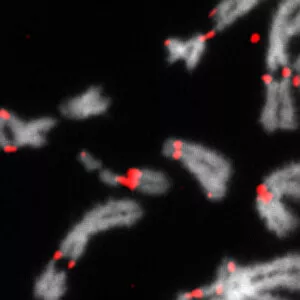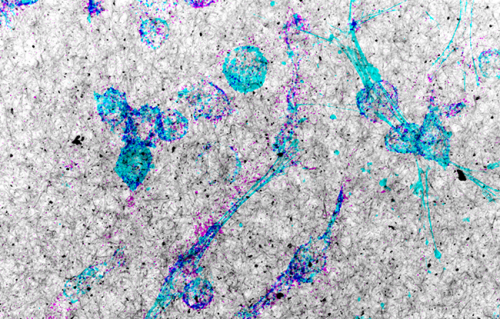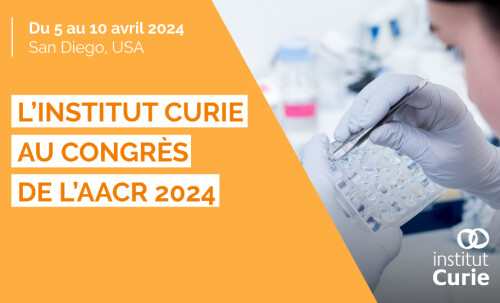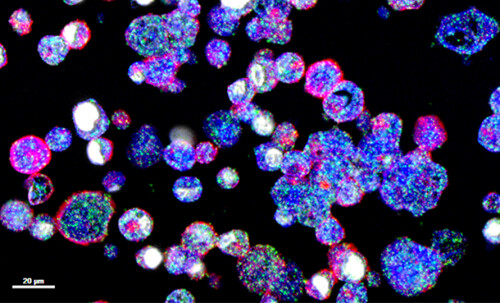During cell division, chromosomes are evenly distributed to the daughter cells, transmitting the same genetic information over cell generations. During these divisions, centromeres play an important role: it is at these specific sites that the cellular machinery responsible of separating chromosomes, attaches itself. Because of this crucial role, and due to their unique structure, centromeres are subject to specific regulation - particularly during their DNA replication - aimed at guaranteeing their stability to avoid their breakage, which could further lead to pathogenic anomalies.
Maintaining centromeric stability
Within the Cell Biology and Cancer unit (CNRS, Institut Curie, Sorbonne Uiversity), the Molecular Mechanisms of Chromosome Dynamics team at the Institut Curie, led by Dr Daniele Fachinetti, Director of Research at the CNRS, has identified the mechanisms and the dynamics of DNA replication of human centromeres. Using novel techniques, the scientists also identified the binding proteins capable of ensuring their stability. Particularly, they characterized the replication dynamics of centromeres (slower and with more activated replication origins) and identified the specific mechanisms that centromeres adopt to complete their replication, that are different from the rest of the genome.
Replicative stress and centromere instability
Researchers have shown that under conditions of replicative stress, centromere stability is severely compromised. This type of stress occurs when the cellular environment disrupts the functioning of the replication machinery, for example during cellular inflammation or in certain cancers.
In parallel, Dr. Fachinetti and his team revealed that in vitro-grown ovarian cancer cells, characterized by a high level of replication stress, have a high frequency of centromeric breaks resulting in chromosome arms exchange. In addition, by analyzing databases established from tissues of different cancers, the team also observed ruptures at the level of centromeres, suggesting the existence of common mechanisms explaining the frequent presence of chromosome abnormalities in cancers.
"This study strengthens research into the stability of centromeres and, in general, of the human genome. These results provide the mechanisms that could explain the chromosomal rearrangements that can be observed in pathologies such as cancer", emphasizes Dr. Daniele Fachinetti's team. "This project opens up numerous avenues of research highlighting the importance of centromeres in maintaining genome stability possibly resulting, in the long term, in therapeutic applications. We have much to learn from these mechanisms in and outside pathology. The regulation of centromere stability could also be affected during aging and, more generally, these mechanisms can serve as an evolutionary driver, leading to inter-individual genetic diversity".
|
Reference: Andrea Scelfo, Annapaola Angrisani (…) Therese Wilhelm and Daniele Fachinetti. Specialized replication mechanisms maintain genome stability at human centromeres. Molecular Cell (14/02/2024) - DOI 10.1016/j.molcel.2024.01.018 |



